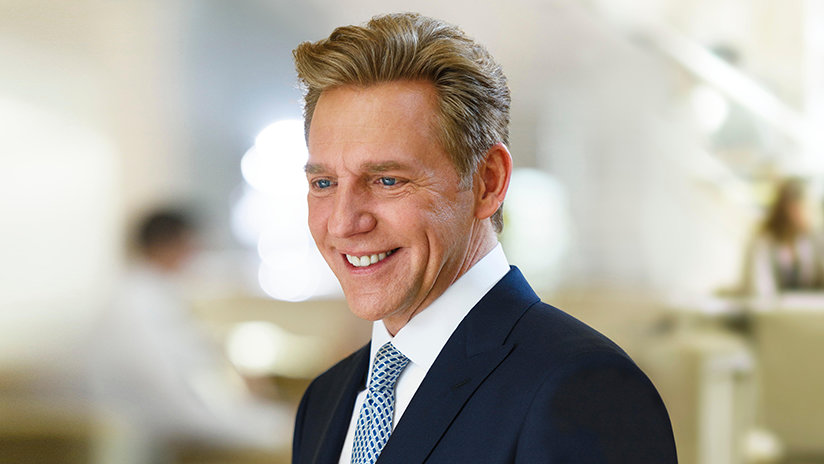
-
HOME
-
WHAT IS STANDOur Mission Our Values Our Help Contact
-
WHAT WE FIGHT FORReligious Freedom Religious Literacy Equality & Human Rights Inclusion & Respect Free Speech Responsible Journalism Corporate Accountability
-
RESOURCESExpert Studies Landmark Decisions White Papers FAQs David Miscavige Religious Freedom Resource Center Freedom of Religion & Human Rights Topic Index Priest-Penitent Privilege Islamophobia
-
HATE MONITORBiased Media Propagandists Hatemongers False Experts Hate Monitor Blog
-
NEWSROOMNews Media Watch Videos Blog
-
TAKE ACTIONCombat Hate & Discrimination Champion Freedom of Religion Demand Accountability
My Friend, David Miscavige
It’s kind of difficult to express to a non-Scientologist what David Miscavige means to us.
I can only try to communicate what he means to me.
And while it’s tempting to compare David Miscavige’s role and significance in our Church to that of leaders of other faiths, it’s a fruitless exercise.
That’s because Scientology and its Founder are so unique and, consequently, so is the man who would come to take its spiritual reins.

L. Ron Hubbard was, like many religious figures before him, respected and revered by many, misunderstood by some, and savagely opposed by a few ill-intentioned others.
His discoveries were monumental and numerous, and he was simultaneously engaged in research, development, training of others and organization of the religion for much of his life.
But unlike other leaders, Mr. Hubbard never claimed to be anything besides a man—a human being. He did not consider himself endowed with divine powers or even divine inspiration—he was simply someone who recognized a need for a better way for mankind to live with one another and attain happiness.
David Miscavige steadily became a familiar leader and, just as steadily, his early achievements became widely known.
The religion Mr. Hubbard founded would be unlike any before it, though it pursues spiritual goals shared by all faiths.
It would be intensely practical, based on direct observation, and applicable by anyone willing to put it to the test to better their own lives and the lives of others.
Like other religions, Scientology has been viciously attacked by freedom-hating madmen who would prefer to see humanity in a state of perpetual war, in cities riddled by crime, full of individuals under the influence of drugs. But it has survived all of that—and flourished in spite of it.
In the 1980s, Mr. Hubbard passed over leadership of this unique, growing religion to the young man he felt most capable of carrying forward his vision.
That young man was David Miscavige.
Comparing David Miscavige to a pope or bishop or evangelical leader doesn’t really get the job done. Here is a man who is occupying a leadership position that, like the religion he represents, has never existed before.
Many Scientologists, like me, were not aware of David Miscavige’s day-to-day ecclesiastical leadership of the Scientology religion for some time after L. Ron Hubbard’s passing in 1986. David Miscavige steadily became a familiar leader and, just as steadily, his early achievements became widely known.
As the years passed and our Church successfully weathered its most challenging times—in no small part thanks to David Miscavige’s brilliant leadership—more and more Scientologists grew to know him for what he is: an extraordinary, steady hand-on-the-wheel leader, well-chosen by Mr. Hubbard for that precise purpose.
Like Mr. Hubbard, David Miscavige isn’t divinely influenced, or specially “anointed.” He does not claim to receive messages from the Founder, or to have visions. He is very much a human being, doing the job he inherited, with the well-earned trust of millions of parishioners around the world.
He does not claim to be perfect or to be a saint. But his contributions to my life, and the lives of my friends and family are so valuable as to beggar description.
He also has a marvelous sense of humor, as anyone would need to have if he were trying to do a tenth of what David Miscavige is doing to bring order into our insane world.
In my personal dealings with Mr. Miscavige over the years, I’ve found him to be a tremendously creative thinker who is courageous and passionate about improving the world through Scientology.
To me, the responsibilities that he embraces are the most laudable and ambitious of any man in history. I respect and admire him for what he has done, and love him for the many sacrifices he has made over his lifetime to bring about a better world.
He is truly one of the most significant leaders and human beings of our time—one I am proud to call my friend.








